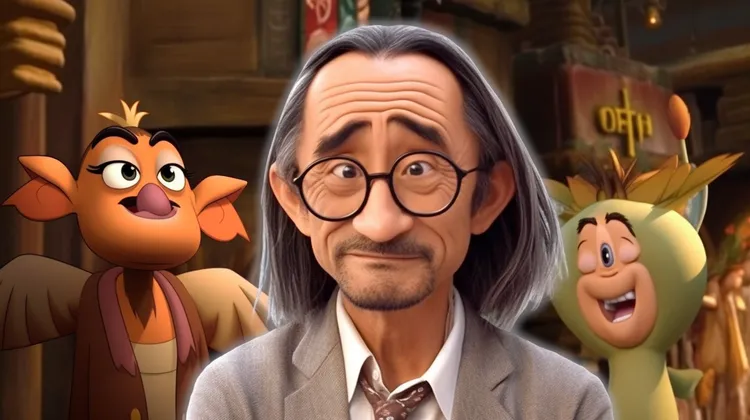Vitalik Buterin, the co-founder of Ethereum, has recently voiced his concerns over decentralized autonomous organizations (DAOs) approving stake pool operators. In a series of tweets, Buterin highlighted the potential risks associated with this emerging trend, calling attention to the need for caution and careful consideration.
DAOs, often facilitated by smart contracts, enable decentralized decision-making and governance in various sectors, including decentralized finance (DeFi). Stake pool operators play a crucial role in many blockchain networks, allowing users to delegate their tokens and participate in the network’s consensus mechanism. The process of selecting and approving these operators has raised concerns in the cryptocurrency community.
Buterin’s concerns primarily revolve around the potential centralization of power and influence within DAOs. As DAOs grow and gain popularity, there is a risk that a limited number of influential individuals or entities could gain control over the approval process for stake pool operators. This concentration of power could pose a threat to the decentralization and democratization that DAOs aim to achieve.
In his tweets, Buterin emphasized the importance of maintaining a diverse ecosystem of stake pool operators. He argued that a decentralized network should have a wide range of operators representing different backgrounds, geographies, and operational approaches. By doing so, the network can better ensure security, resilience, and broad participation from its users.
Another concern raised by Buterin is the potential for stake pool operators to form alliances or collude with each other. In a decentralized network, it is crucial to prevent any collusion that could compromise the integrity of the system. Approving stake pool operators through DAOs without rigorous oversight and accountability mechanisms could open up avenues for such collusion, undermining the trust users place in decentralized networks.
To address these concerns, Buterin suggested the implementation of various checks and balances within DAO governance structures. He proposed the use of multiple DAOs, each with its own selection process, to avoid undue concentration of power. Transparent and auditable procedures for selecting stake pool operators could help mitigate the risks of collusion and centralization.
Buterin highlighted the importance of separating the responsibility of stake pool operator approval from the governance of the network itself. By separating these functions, conflicts of interest can be minimized, and stakeholders can approach each decision independently and with proper scrutiny.
While Buterin’s concerns are valid, many proponents argue that DAOs can play a crucial role in promoting transparency, efficiency, and inclusivity in the selection of stake pool operators. DAOs, if properly designed and governed, can enable a fair and decentralized decision-making process, allowing the community to actively participate and contribute to the network’s growth.
To strike the right balance between decentralization and governance, it is essential to establish clear guidelines and mechanisms that ensure the selection of stake pool operators aligns with the principles and objectives of the network. This may involve setting criteria for approval, regular reviews of operators’ performance, and implementing mechanisms to prevent collusion or centralization tendencies.
The concerns raised by Vitalik Buterin highlight the need for ongoing discussions and iterative improvements in DAO governance models. As blockchain technology continues to evolve, it is crucial that the community and industry leaders actively engage in these discussions to address the challenges and ensure the long-term success and sustainability of decentralized networks.
While DAOs approving stake pool operators can empower communities and promote decentralization, careful consideration and risk mitigation are essential to avoid centralization of power, collusion, and other potential vulnerabilities. The active involvement of stakeholders, industry experts, and leadership figures like Vitalik Buterin will be key in shaping the future of DAO governance, ensuring its alignment with the core principles of decentralization and inclusivity.




Who elected Buterin as the spokesperson for the cryptocurrency community? We have different opinions, and that’s okay.
Separating stake pool operator approval from network governance is a smart move, as pointed out by Vitalik Buterin. 🤝 This way, conflicts of interest can be minimized and decisions can be made with proper scrutiny.
Vitalik Buterin needs to stop being such a worrywart. DAOs are the future, and we need to embrace them fully.
Buterin’s concerns are nothing new. We’ve been debating these issues for years. It’s time to move on and focus on progress.
I completely agree with Vitalik Buterin’s call for clear guidelines and mechanisms in stake pool operator selection. Regular reviews and anti-collusion measures are necessary for a secure and resilient decentralized network.
Buterin’s concerns just sound like unnecessary fearmongering. Decentralization doesn’t mean everyone has to have an equal say in everything.
Buterin’s tweets are just a bunch of vague warnings without any concrete solutions. What’s the point?
Collusion among stake pool operators is a valid concern raised by Vitalik Buterin. DAOs must have proper oversight and accountability measures in place to prevent any compromises to the system’s integrity.
Vitalik Buterin’s tweets highlight the need for caution and careful consideration when it comes to approving stake pool operators through DAOs. Transparency and accountability are key to maintaining trust in decentralized networks.
Great suggestion by Vitalik Buterin to implement multiple DAOs with different selection processes to avoid concentration of power. It’s all about maintaining a decentralized network!
Careful consideration and risk mitigation are necessary to ensure decentralized networks stay true to their principles. Thanks to Vitalik Buterin for reminding us to stay vigilant in promoting decentralization and inclusivity.
Buterin needs to stop micromanaging and let the market self-regulate. DAOs will figure things out on their own.
This is just fearmongering to maintain Buterin’s relevance in the crypto world. I’m tired of hearing his unfounded concerns.
Just because Buterin has concerns doesn’t mean we should all panic. Let the market decide what works and what doesn’t.
I agree with Vitalik Buterin’s concerns about centralization within DAOs. We should strive for a diverse ecosystem of stake pool operators to ensure decentralization and security.
Yawn, another day, another article about Buterin’s worries. Can we focus on something more interesting, please?
Who made Vitalik Buterin the ultimate authority on DAOs? His concerns are just his opinions, nothing more.